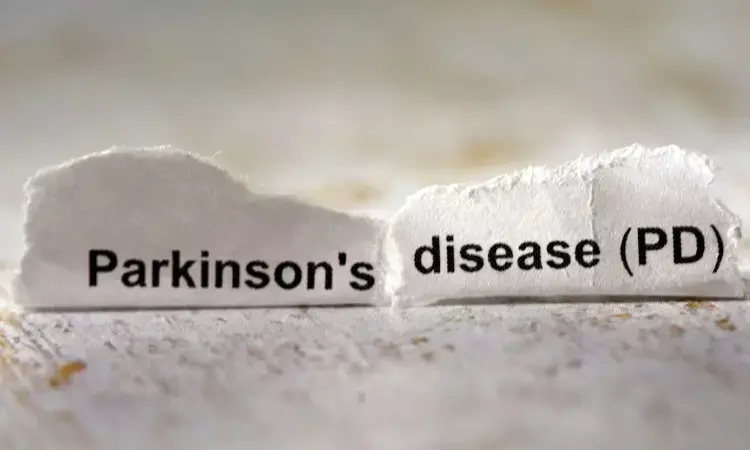- Home
- Medical news & Guidelines
- Anesthesiology
- Cardiology and CTVS
- Critical Care
- Dentistry
- Dermatology
- Diabetes and Endocrinology
- ENT
- Gastroenterology
- Medicine
- Nephrology
- Neurology
- Obstretics-Gynaecology
- Oncology
- Ophthalmology
- Orthopaedics
- Pediatrics-Neonatology
- Psychiatry
- Pulmonology
- Radiology
- Surgery
- Urology
- Laboratory Medicine
- Diet
- Nursing
- Paramedical
- Physiotherapy
- Health news
- Fact Check
- Bone Health Fact Check
- Brain Health Fact Check
- Cancer Related Fact Check
- Child Care Fact Check
- Dental and oral health fact check
- Diabetes and metabolic health fact check
- Diet and Nutrition Fact Check
- Eye and ENT Care Fact Check
- Fitness fact check
- Gut health fact check
- Heart health fact check
- Kidney health fact check
- Medical education fact check
- Men's health fact check
- Respiratory fact check
- Skin and hair care fact check
- Vaccine and Immunization fact check
- Women's health fact check
- AYUSH
- State News
- Andaman and Nicobar Islands
- Andhra Pradesh
- Arunachal Pradesh
- Assam
- Bihar
- Chandigarh
- Chattisgarh
- Dadra and Nagar Haveli
- Daman and Diu
- Delhi
- Goa
- Gujarat
- Haryana
- Himachal Pradesh
- Jammu & Kashmir
- Jharkhand
- Karnataka
- Kerala
- Ladakh
- Lakshadweep
- Madhya Pradesh
- Maharashtra
- Manipur
- Meghalaya
- Mizoram
- Nagaland
- Odisha
- Puducherry
- Punjab
- Rajasthan
- Sikkim
- Tamil Nadu
- Telangana
- Tripura
- Uttar Pradesh
- Uttrakhand
- West Bengal
- Medical Education
- Industry
New Study Identifies Key Signs to Predict Parkinson's Disease in Its Early, Prodromal Phase

USA: A new prospective cohort study published in the Annals of Neurology sheds light on the early identification of individuals in the prodromal phase of Parkinson's Disease (PD), offering promising insights for future prevention strategies. The study emphasizes the potential to detect subtle signs and symptoms that could predict the onset of clinically manifest Parkinson’s Disease, potentially leading to earlier interventions and more effective treatment approaches.
"In a large-scale study involving 6,108 men, the presence of constipation, probable rapid eye movement sleep behavior disorder, and hyposmia was associated with a 23-fold increased risk of developing PD within three years (risk ratio [RR] = 23.35). Furthermore, individuals with a prodromal PD probability of ≥0.8, according to the Movement Disorders Society criteria, had a 21-fold higher risk (RR = 21.96)," the researchers reported.
Parkinson's Disease, a neurodegenerative disorder, is often diagnosed once symptoms such as tremors, rigidity, and bradykinesia become clinically apparent. However, evidence suggests that changes in the brain may begin years before the disease fully manifests. Considering this, Mario H. Flores-Torres, Department of Nutrition, Harvard T.H. Chan School of Public Health, Boston, MA, and colleagues conducted a prospective evaluation to assess how effectively combinations of signs and symptoms can identify individuals in the prodromal phase of Parkinson's disease.
For this purpose, the researchers included 6,108 men who underwent repeated assessments of key prodromal features and were prospectively followed for the development of Parkinson's disease. Two composite measures of prodromal PD were evaluated: (i) the co-occurrence of constipation, probable rapid eye movement (REM) sleep behavior disorder (pRBD), and hyposmia, and (ii) the probability of prodromal PD based on the Movement Disorders Society (MDS) research criteria. Additionally, the researchers examined the progression and heterogeneity of the prodromal PD phase.
The study led to the following findings:
- A total of 103 individuals were newly diagnosed with Parkinson's disease (PD) over an average follow-up of 3.4 years.
- Men with constipation, probable REM sleep behavior disorder (pRBD), and hyposmia had a 23-fold higher risk of receiving a PD diagnosis in the next 3 years compared to men without these features (risk ratio [RR] = 23.35).
- The risk of PD was 21-fold higher in men with a probability of prodromal PD ≥ 0.8 compared to those with a probability < 0.2 (RR = 21.96).
- The co-occurrence of the three non-motor features and an MDS-based probability ≥ 0.8 were comparable in their predictive value. They were stronger predictors of PD than any of the individual features.
- Two prodromal PD subtypes were identified, with REM sleep behavior disorder (RBD) and visual color impairment as key discriminators.
The authors provide compelling evidence that combinations of key signs and symptoms can strongly predict the future development of clinically manifest Parkinson's disease. These findings suggest that such measures could be incorporated into screening strategies, allowing for the identification of individuals who may benefit from early intervention and enrollment in PD prevention trials.
Reference:
Flores-Torres, M. H., Hughes, K. C., Cortese, M., Hung, A. Y., Healy, B. C., Schwarzschild, M. A., Bjornevik, K., & Ascherio, A. Identifying Individuals in the Prodromal Phase of Parkinson's Disease: A Prospective Cohort Study. Annals of Neurology. https://doi.org/10.1002/ana.27166
Dr Kamal Kant Kohli-MBBS, DTCD- a chest specialist with more than 30 years of practice and a flair for writing clinical articles, Dr Kamal Kant Kohli joined Medical Dialogues as a Chief Editor of Medical News. Besides writing articles, as an editor, he proofreads and verifies all the medical content published on Medical Dialogues including those coming from journals, studies,medical conferences,guidelines etc. Email: drkohli@medicaldialogues.in. Contact no. 011-43720751


